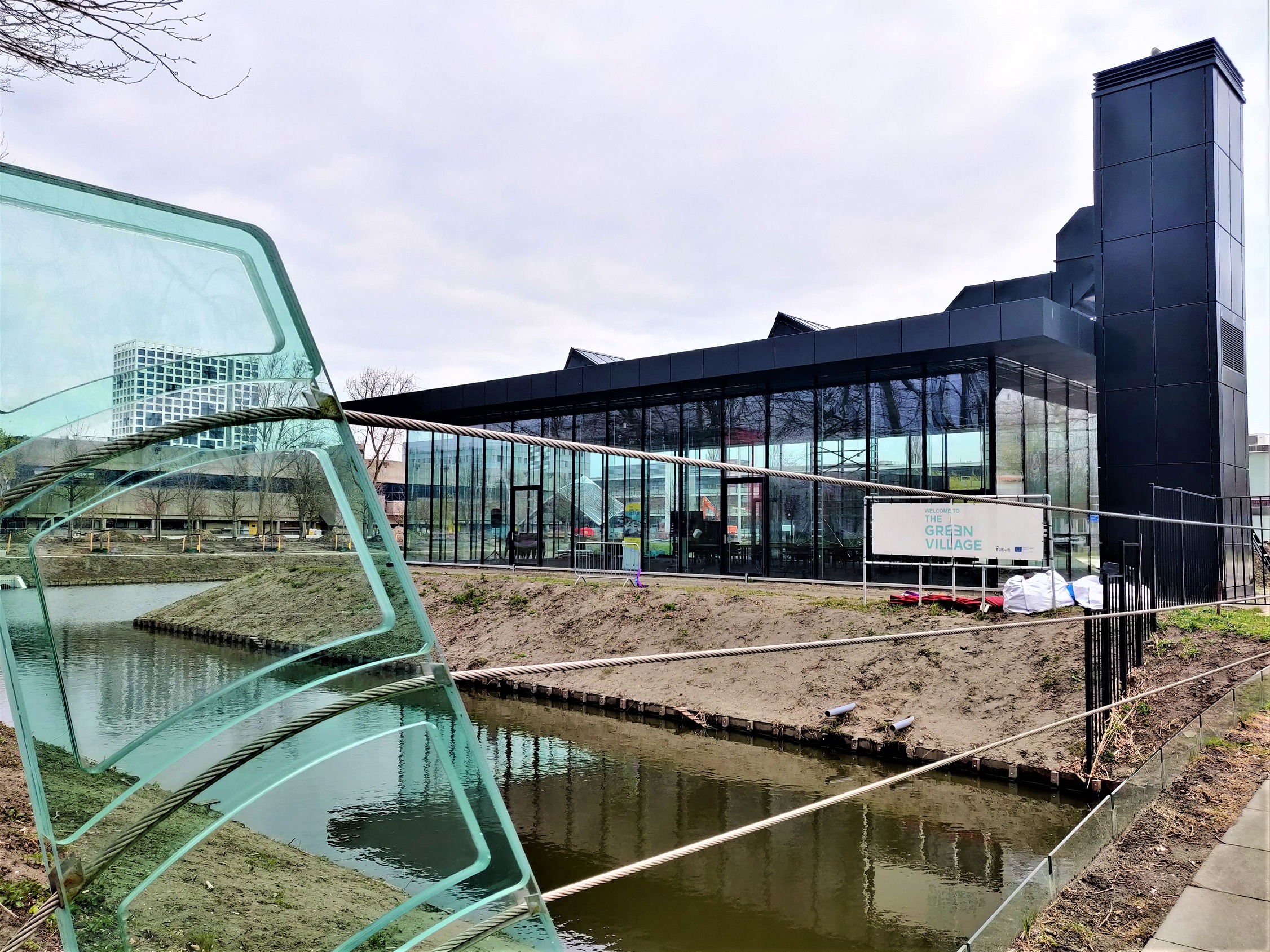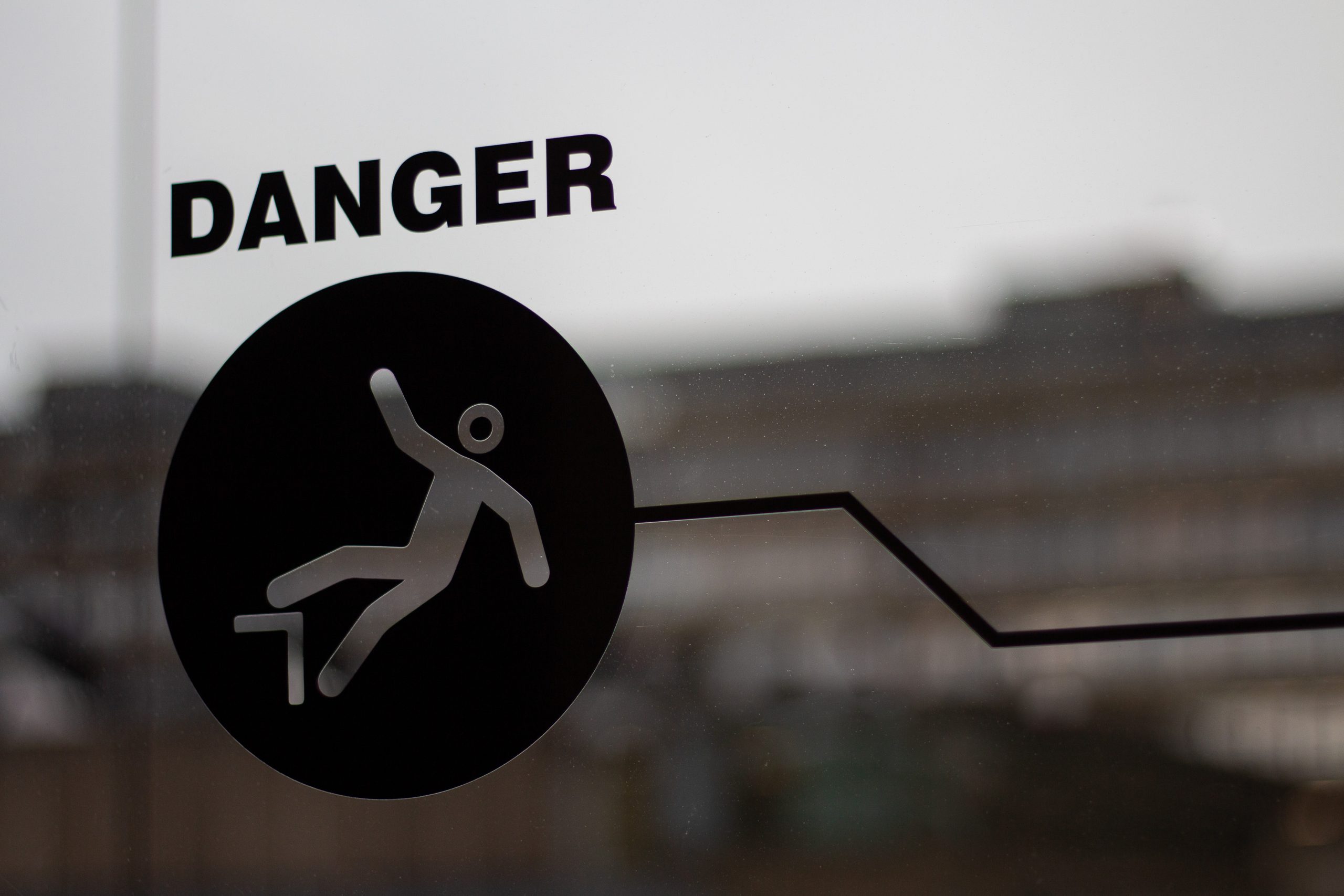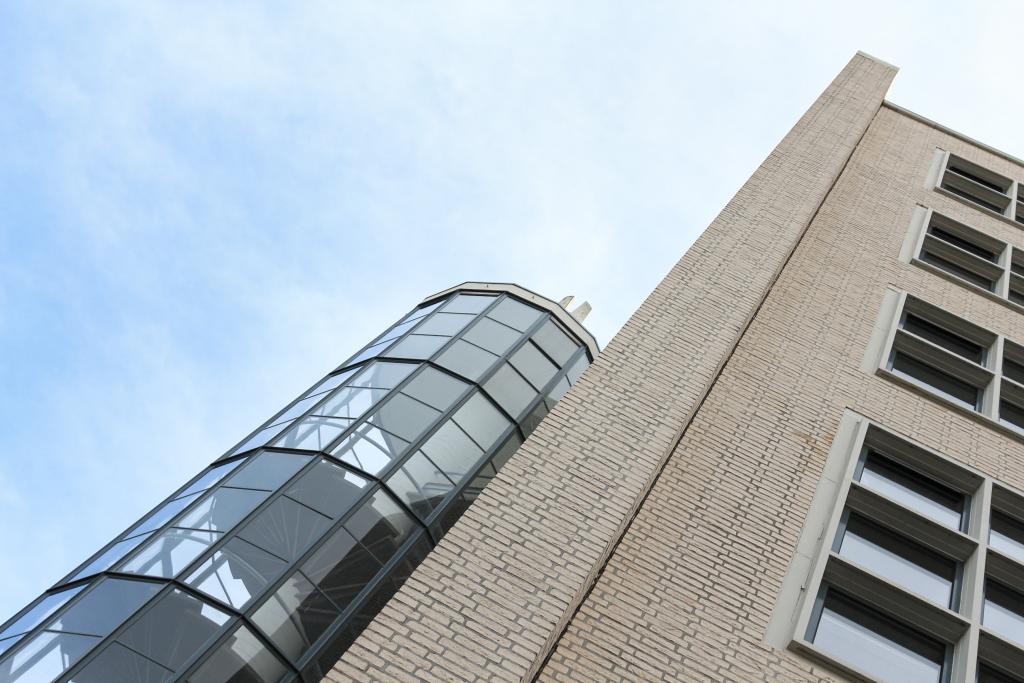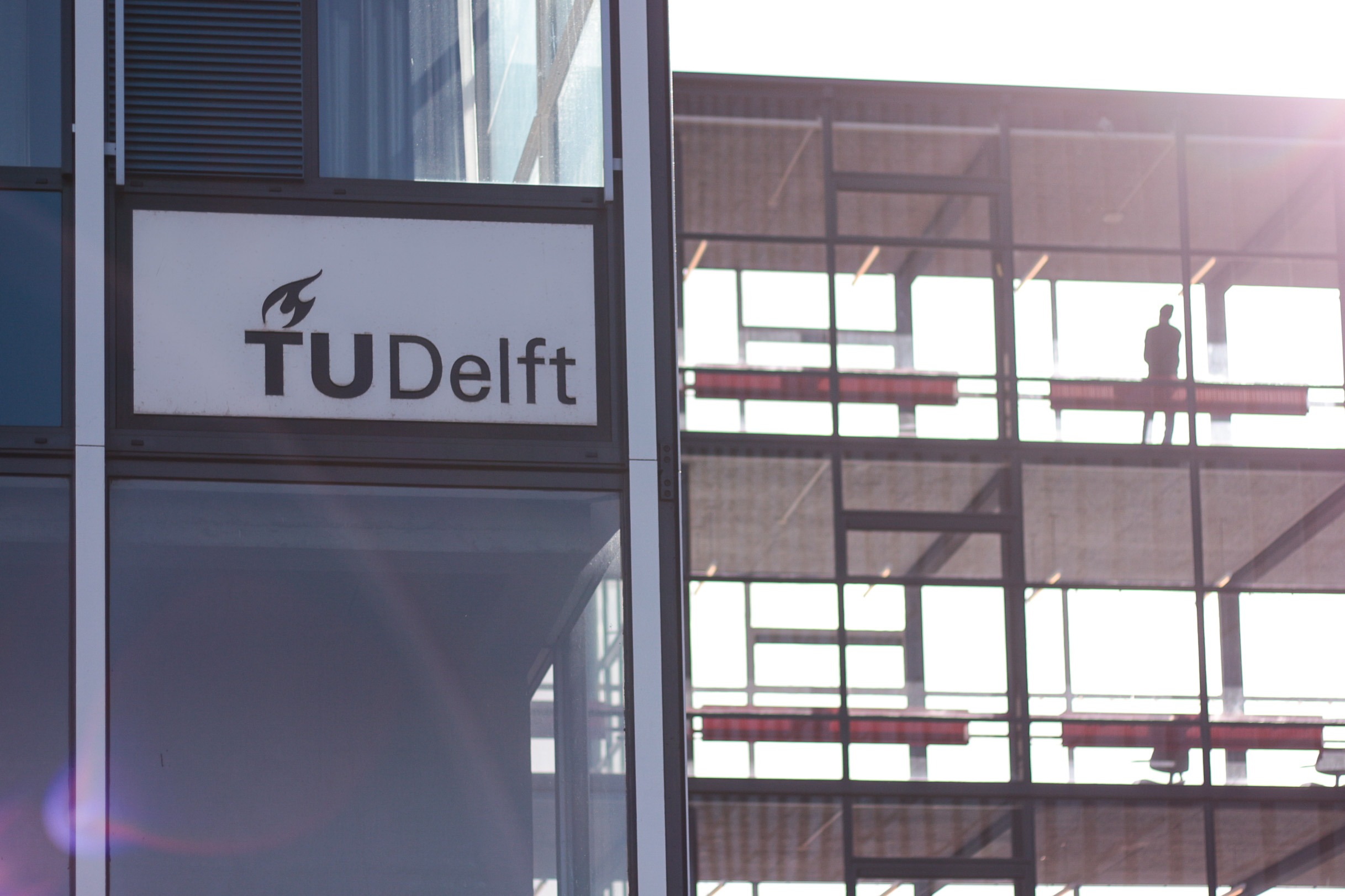(Photo: Justyna Botor)
After an investigation into possible transgressive behaviour on the work floor at TU Delft, the Inspectorate of Education concludes that there was mismanagement. It says that TU Delft failed at the highest level to ensure social safety. TU Delft calls this investigation ‘flawed’ and a ‘big steps fast home report’ and plans to go to court.
This article in 1 minute
- The Inspectorate of Education believes that there is a case of mismanagement in TU Delft’s duty of care towards its employees.
- Its report covers 148 statements that it received in detail. The most frequently cited allegations are intimidation and the lack of leadership. The consequences for the people involved are huge.
- In an unusual step, TU Delft itself published the report on 1 March. It did this to avoid employees finding out about this in newspapers.
- TU Delft is in complete disagreement about the methods used by the Inspectorate. It alleges that the investigation is not representative while the Inspectorate uses it to draw major conclusions.
- An independent investigation that TU Delft itself had carried out confirms its views.
- The 2024 employee monitor shows a dropping trend in experiences of the lack of social safety.
- TU Delft is now considering whether to approach the civil court.
- The Inspectorate asserts that there is much work to be done by the Executive Board, the Supervisory Board, the Human Resources department and others.
By Saskia Bonger, Annebelle de Bruijn and Marjolein van der Veldt.
The Executive Board and the Supervisory Board disagree with the Inspectorate’s methodology and the ensuing conclusions to such a degree that they did not wait for the Inspectorate to publicise its report as is the norm. They thus published it themselves on Friday 1 March at 12:00. The Inspectorate was informed accordingly on Friday morning. Before publishing the report, a well-attended staff meeting was held at the Green Village.
A spokesperson said that TU Delft opted to release this information because it wanted to avoid staff members hearing about what the Inspectorate’s report said through ‘the newspapers’. “We expect that there will be so many reactions in the community that we could do nothing other than inform people ourselves.” The spokesperson wished to emphasise ‘that the interests of social safety and the people who lodged reports come first’. “We very much care about what they reported. We will do everything we can to improve the social safety.”

At the same time, he says, there are also “unfounded conclusions”. “That this is done without an actual investigation and without an adversarial principle should not have been done. We have been trying to convince the Inspectorate since November that the investigation was not done thoroughly, but they did not listen. So we are now moving ahead.”
Not only did TU Delft publish the Inspectorate’s report on 1 March, it also issued a press release and its position. The latter, that will ultimately be included in the Inspectorate’s report, was only finalised on 29 February. Delta read the Inspectorate’s report and TU Delft’s position on 29 February under embargo. Delta also read TU Delft’s response to the draft report that was produced in November 2023, and the response of the Inspectorate to it, and an expert report issued by the Verinorm Research Agency written by Professor Marjan Olfers of the Free University of Amsterdam.
Action plan
The Inspectorate’s report is the most voluminous document. It is 114 pages long and is divided into 12 chapters. In its report, the Inspectorate ‘urges TU Delft to address the concerns of its employees so that it is socially safe and can grow socially’. It states that TU Delft should compile and execute an action plan on the areas which the Inspectorate believes are going wrong. These are leadership, culture, management and consultations with employees.
The Inspectorate says that it will carry out a new investigation in one year’s time ‘to evaluate whether the action plan and its execution have brought about sufficient improvement in the care of the staff at TU Delft’.
Mismanagement
The now published investigation highlighted two main areas: social safety and finances. In the case of the latter, the Inspectorate states ‘that there are no indications of illegitimate enrichment’. More on this in another publication later. In the case of the former, the Inspectorate refers to ‘mismanagement’, the heaviest imaginable label in terms of the Education Act. The implication of a ‘high risk of social insecurity for all staff members’ is that the care for employees is lacking. This is a source of ‘major concern’ at the Inspectorate.
Those reporting incidents often have long-term effects which hinder them
In December 2022, the Inspectorate asked staff members to report any inappropriate behaviour at work to them. They did this because they had received ‘several signals’ about intimidation, threatening behaviour, HR processes, the way people address each other, the complaints procedure, and financial mismanagement. It is not stated how many signals it received and from how many people. The Inspectorate contacted the relevant people to ‘familiarise’ itself and thereafter concluded that the Education Act may be being breached.
Research
After inviting statements, the Inspectorate received 148 reports. They were:
- from 88 women, 57 men, and three people whose gender was not specified;
- mostly from people who were not in supervisory positions such as PhD candidates, post-docs and support staff;
- reports ‘that were almost always about people in supervisory positions such as managers or professors’. Hierarchical relationships were usually pertinent issues.
PTSD
What is striking is that the Inspectorate intentionally does not use a definition of either social safety or the lack of social safety, but uses ‘the personal experiences of the people who lodged reports and who they interviewed’. TU Delft and Verinorm consider this flawed. Verinorm writes: ‘Basing a judgement on personal experiences and the perceptions of those lodging reports without defining the terms is inconsistent with the required due diligence.’

The experiences reported cover several categories. The Inspectorate’s report states that intimidation is the most commonly reported issue. After that it is a lack of leadership, exclusion, sexism, sexual intimidation, violation of integrity, gossip, racism, and bullying. It states that these are substantiated by previous annual reports, among which from the confidential advisors and the ombudsman. This is in contrast with TU Delft’s triennial employee monitor. More on this further in this article.
Those reporting incidents often have long-term effects which affect their lives. The Inspectorate speaks of psychological and physical health complaints, dropping out, and a general feeling of insecurity. Stress, burnout, depression, PTSD, crying and tense home situations also emerge, as do illness, vomiting at work, panic attacks and rapid heartbeats. The Inspectorate states that these often lead to dropping out of work and transfers to other teams or faculties. TU Delft supposedly sees this as the easiest option. The people who are the source of the complaints are said to usually remain in their positions, leading to a culture of fear.
Management and supervision
The Inspectorate also alleges that while there are ‘mechanisms to ensure a socially safe environment’ at TU Delft (such as confidential advisors and the complaints committee for undesirable behaviour), these ‘are hard to find and not effective enough’. The inspectors go on to say that the management ‘omits adding everything together to create a complete image’ and ‘does not sufficiently take appropriate measures’. Furthermore, the Human Resources department is overly occupied with ‘upholding the organisation and the existing power structure’ and a large part of the staff body does not dare express its opinion.

The Executive Board and the Supervisory Board are also criticised in the report. The inspectors point out that both are ‘generally positive about the mechanisms while they too read the annual reports from the confidential advisors, ombudsman and university social worker’. The current and past members of the Executive Board have brought about ‘a higher perception of the lack of social safety’.
The Inspectorate believes that the Supervisory Board ‘has not put enough effort into the social safety of staff members’. They supposedly have a ‘limited information structure’, ‘show greater effort’ and make themselves more available to staff members. The Inspectorate also asserts that the Supervisory Board does have all sorts of reports and carries out consultations, but that these are not always about social safety. They write that ‘in several meetings with members of the Supervisory Board, they did not know the answers to questions while the Inspectorate expected the members to know them’.
It also says that there have been ‘some incidents of intimidation and/or threats by administrators or former administrators and a former regulatory body supervisor. The Inspectorate could not say if this was a regular occurrence, it writes, but nevertheless considers that ‘there is a high risk for these kinds of incidents’.
Outrage
TU Delft responded with outrage to the ‘big steps fast home report’, as it calls the report, and had hoped that the report’s allegations would never be made public as it believes that the investigation was not done properly. In its initial response to the draft report on 12 January, it had written: ‘It is well established that for TU Delft at least, a report like this or similar should not be made public’.
‘The report is unnecessarily harmful for groups of staff members’
TU Delft says that the report is ‘not based on a thorough investigation’ and is thus ‘harmful for groups of staff members’ as the accusations could be seen as generic and there is incorrect, incomplete or even no evidence for the accusations and no consultation was carried out (adversarial principle).
During the investigation, TU Delft had hired a legal firm, Stibbe, which asked the investigation team from Verinorm to evaluate the Inspectorate’s investigation methodology. The Verinorm team classified the Inspectorate report as ‘a collection of a small number of anonymous reports that could not justify any generalised claims about the culture or the employees at TU Delft’. They concluded that the investigation was not representative of the culture nor a wider group of TU Delft employees. ‘This would require a different representative, quantitative and qualitative investigation.’
Baseline measurement
Apart from this, TU Delft is also critical about the lack of referring to findings from its own investigations, such as the employee monitor, even though the Inspectorate did refer to it. ‘While the Inspectorate did not have access to a baseline measurement or benchmark, TU Delft has had them for years (the employee monitor that was held in 2017, 2020 and 2024. Eds.). The benchmark shows that there is a positive, rising trend and that the TU Delft policy is having an effect.’
TU Delft refers here to the dropping percentage of employees who say that they have experienced undesirable behaviour once or more often. Delta read the chapter about social safety in the latest employee monitor, which is yet to be published, on 29 February and it indeed shows that the percentage has dropped from 28% in 2017 to 16% in 2024.

It its statement of views, TU Delft contradicts the allegation that the experiences of employees in a non-representative random test, such as the Inspectorate’s report, says anything about its culture, especially as it would lead to ‘far reaching consequences of mismanagement’. ‘TU Delft is unable to deny these experiences (the statements of those lodging reports, Eds.) as it was not given the opportunity to do so. But above all, TU Delft would not deny the expressed experiences. The fact that people […] reported these experiences to the Inspectorate affects it (TU Delft, Eds.) deeply.’
The Inspectorate admits that it had not done any research on the culture in its reports. It did ‘an investigation into the enforcement of legislation and regulation’. It also admits to not having done any fact checks nor any adversarial procedures, partly to protect the anonymity of those lodging reports. They do not see a representative random test as either required or necessary. It believes that the main issue of whether ‘care is taken in all reasonableness and fairness in dealing with those involved at TU Delft’ can be done without ‘a random test among enough employees’.
Court
TU Delft criticises the methodology of the Inspectorate to the finest detail. It accuses the Inspectorate of acting against the law as, in TU Delft’s eyes, it did not use an investigation framework which is mandatory. In its response to TU Delft, the Inspectorate acknowledges this, but says that this is not required as its investigation was not about the quality of education.
The Inspectorate has acknowledged receipt of most of the points of criticism
TU Delft sees so much carelessness and oversights in the investigation that it believes that the report is ‘unacceptable’. But – to TU Delft’s great frustration – its many pages of feedback on the draft have not led to many modifications. The documents show that the Inspectorate has acknowledged receipt of most of the points of criticism. A consultation between the two parties on 13 February also led nowhere. The TU Delft spokesperson calls it a ‘one-sided discussion that only lasted 35 minutes’.
All these factors led to the decision to make all the documents public on 1 March. In a press release, the Executive Board and the Supervisory Board recognise that there is room for ‘improving social safety’. While they accept the recommendations of the Inspectorate, they say the report ‘does not make any constructive contributions’, and is ‘disappointing’ and ‘unnecessary’. ‘The report points to guilty individuals while the intention is that we all need to learn and bring about improvements’.
A visit to court seems inevitable, even though this step is still to be decided upon. In its statement of views, TU Delft writes that the Inspectorate’s report ‘contravenes the principles of legality, legal security and care, and also those of proportionality’. ‘This is the legal basis for TU Delft possibly going to the civil court to ask for a judgement on the legality of the report.’
- Delta is looking for current and former TU Delft employees who are willing to share their experiences. This can be done anonymously if preferred. Email tudelta@protonmail.com.



Comments are closed.